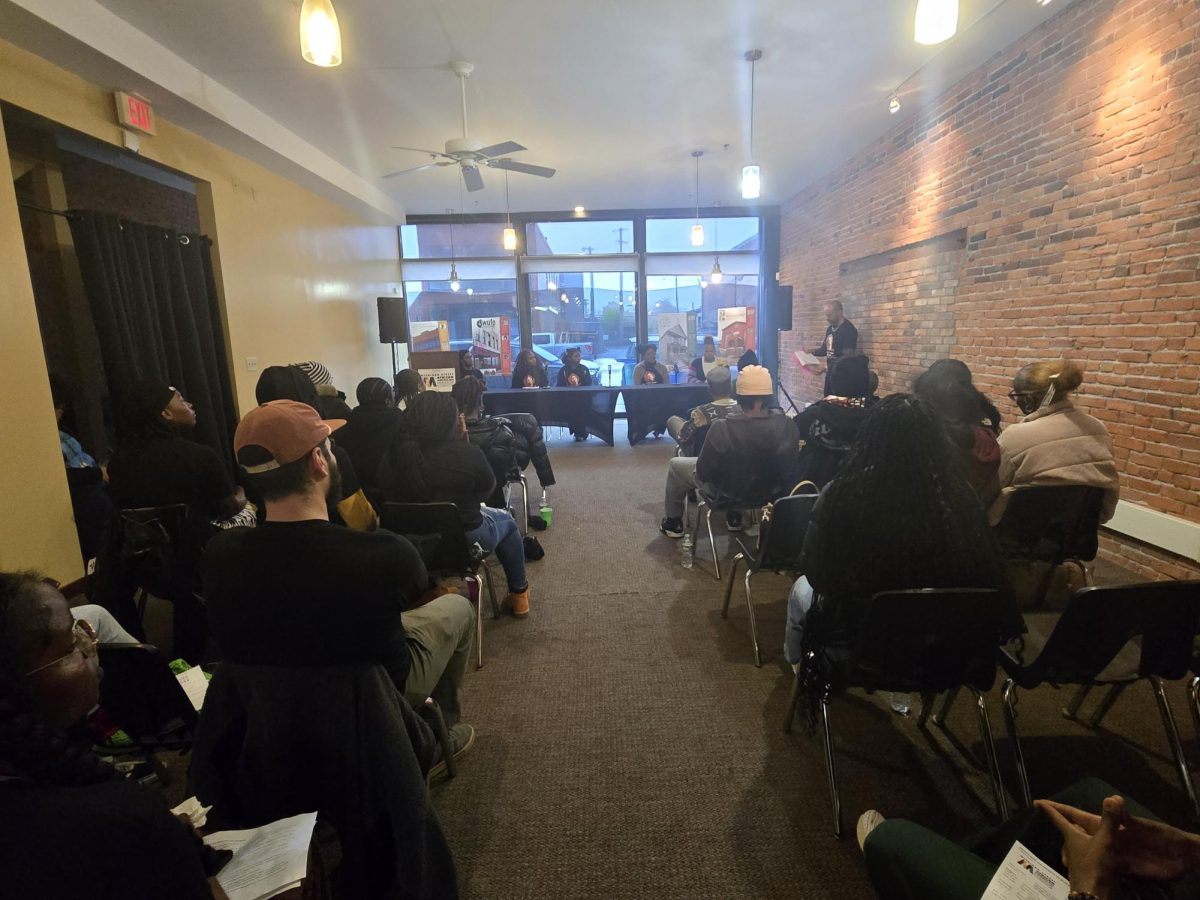University Police officers get lesson on fair, honest policing
March 3, 2016
SUNY Buffalo State’s University Police Department has begun training its officers in fair and impartial policing to ensure there are no issues of bias in its law enforcement.
The Fair and Impartial Policing Program is based off the “science of bias” according to the program’s informational page, fairimpartialpolicing.com.
“Social psychologists have shown that ‘implicit’ or ‘unconscious’ bias can impact what people perceive and do, even in people who consciously hold non-prejudiced attitudes,” the information page said.
The training targets biases, both conscious and unconscious, that trainees may have been previously unaware of. Through a series of modules, the biases are revealed along with ways to counteract them in order to effectively police.
UPD Lt. Michael Myers is in charge of training the University Police officers at Buffalo State’s campus.
“Any time that you use a person’s race, gender, socioeconomic status as a basis for making an enforcement decision, you’re engaging in bias policing,” Myers said.
Myers used the example of a personal bias he has —a bias that elderly people aren’t good at driving cars – to emphasize the importance of being aware of personal biases. Myers said he obtained this bias through being involved in two motor vehicle accidents involving elderly drivers.
“If I then were to respond to a car accident involving elderly people and assume that the elderly are at fault, I would be engaging in bias policing and, in turn, treating people unfairly,” Myers said. “By knowing this, I can overcome the bias and police fairly.”
One of the modules used in the training involves a scenario that is based off a real life event where bias policing lead to a tragic outcome. In this exercise, the officers are given seven minutes to figure out how to react to a scenario in which officers had seven seconds to respond to.
“I am confident that I can put any of the officers that work for me and work in this department through any of the scenarios (that had a tragic outcome) and they are not going to make the same decisions,” Myers said. “The first thing they would do is slow down, which is extremely important, just seven seconds and a man lost his life.”
Contact theory and counter stereotypes are among the tactics used in the program to reduce biases. Contact theory states that the more time you spend with groups other than your own, the less personal bias you will have. Counter stereotypes are reverse stereotypes. The training uses a scene from the movie “Money Train,” where a character played by Woody Harrelson gets pick-pocketed by an elderly woman. Harrelson assumed that the person who pick-pocketed him, because she was a female and old, was of no threat to him, when in actuality the lady was dangerous.
Officers at Buffalo State’s UPD are exposed to a counter stereotype by having their head defensive instructor be female officer Raven Harvey.
“When you are fighting with her, if you think for a second that she couldn’t hurt you, you would lose,” Myers said.
For the last part of the training, officers are put in a real life scenario where University Police student aides volunteered to pretend to be students who acted disorderly (playing music and harassing people in a park). Two of the volunteers in this scenario might have been armed (one male and one female were). The officers were told to identify the people that were armed.
The results of how Buffalo State’s UPD officers handled this situation were “perfect” according to Myers.
“The officers were able to properly identify both of the armed disorderly people, following through on the correct protocol, patting each person down in an orderly, efficient fashion,” Myers said.
Carly Bodenschatz, a parking services student assistant who was involved in the training, agreed with Myers.
”They were very professional and handled the situation like a real situation. I felt like I was actually in trouble,” Bodenschatz said.
The Fair and Impartial Policing training has now been mandated for every SUNY campus statewide. Each officer at Buffalo State is required to go through the six-hour training process.
“None of this training is new to my officers, in my opinion they have been professional and impartial for as long as they have worked for me,” Myers said.
email: niman.record@outlook.com



